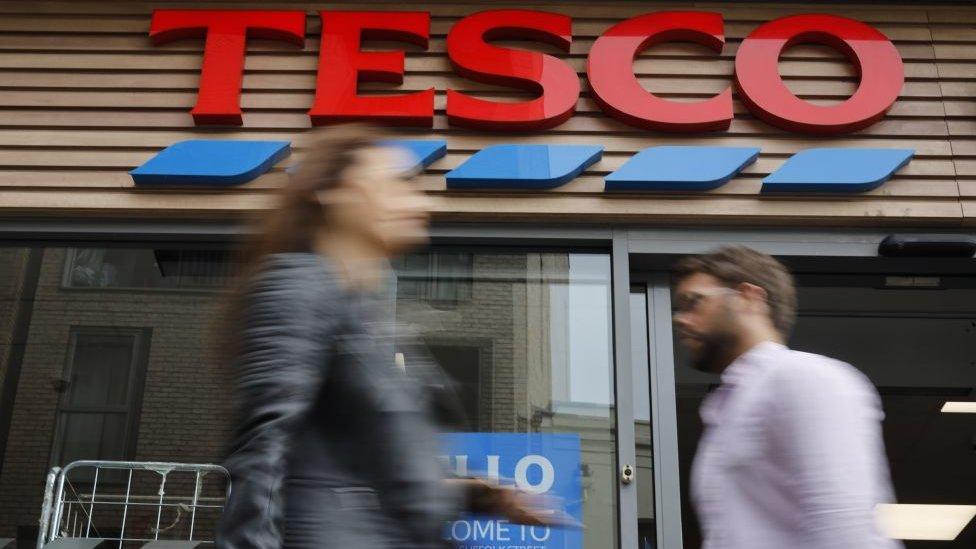Coronavirus: Food deliveries from volunteers provide lifeline
- Published
- comments
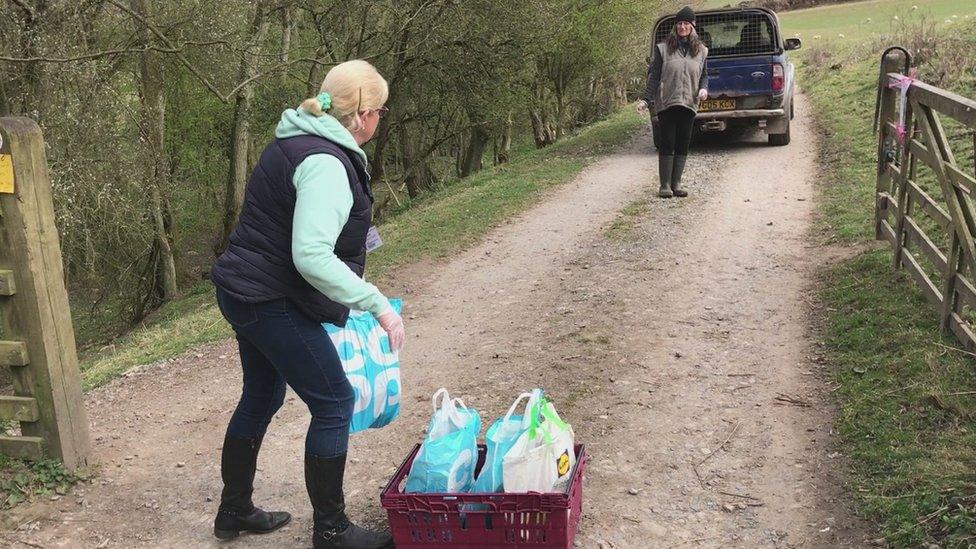
Volunteers are providing food delivery services to people across large parts of rural England
Families in parts of rural England say they are totally dependent on volunteers delivering food during the coronavirus crisis.
Catherine Boyes from North Yorkshire said her son has cystic fibrosis and she was shielding him by staying home.
In rural England many households face long journeys to buy food and this is more difficult if families are self-isolating.
The Countryside Alliance said volunteers were "plugging gaps".
Under lockdown restrictions, shopping for food is one of only four reasons why people are allowed to leave their home.
Ms Boyes said: "Without these deliveries my children would starve."
The mother of six, who lives on a farm on the edge of the North York Moors National Park, said she had struggled to get a regular delivery from a supermarket due to surging demand and is reliant on the Pickering Help Network to deliver supplies.
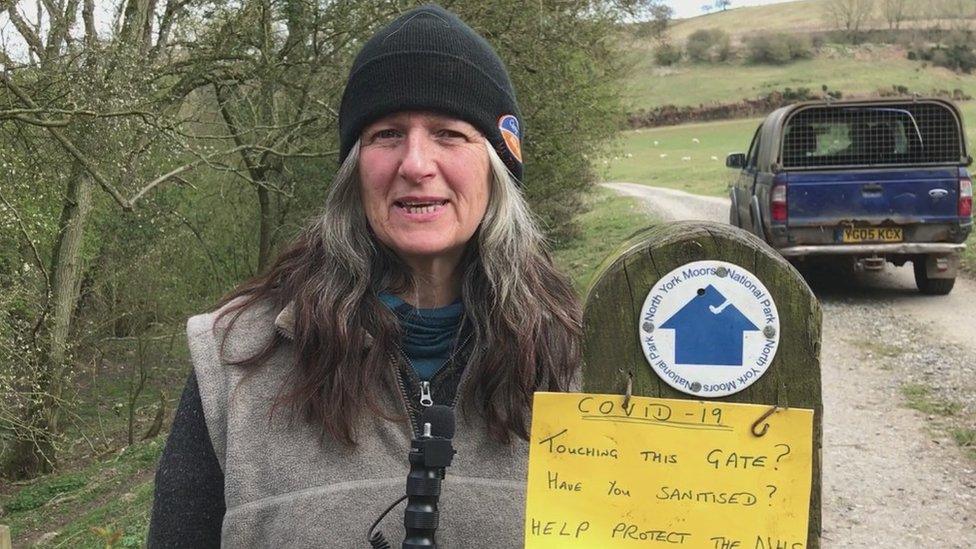
Catherine Boyes from North Yorkshire said local food delivery volunteers were essential for her family
"My eldest son has cystic fibrosis so we can't go to the shops and risk coming into contact with this hideous disease," she said.
"This crisis really has brought out how isolated we are."
Families across the country are facing difficulties receiving regular home deliveries from the big supermarkets.
Tesco has said it will not be able to meet all requests for home deliveries.
Sainsbury's has said it will prioritise vulnerable people for delivery slots while Asda has said if people can shop safely in stores they should do so to free up deliveries for those who need them.

A SIMPLE GUIDE: How do I protect myself?
AVOIDING CONTACT: The rules on self-isolation and exercise
MAPS AND CHARTS: Visual guide to the outbreak
VIDEO: The 20-second hand wash

Pauline Hewitt is one of around 100 volunteers who are helping to deliver food parcels from the rural town of Pickering in North Yorkshire.
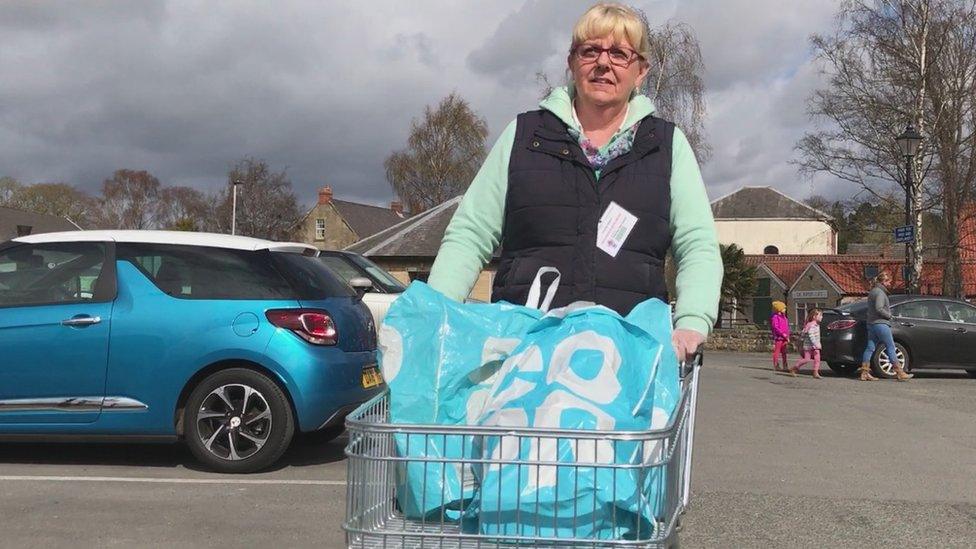
Pauline Hewitt is one of hundreds of volunteers who have come forward to help deliver food in North Yorkshire
"There's a real sense of fear and panic among some people about how they are going to get their shopping in an area like this," said Mrs Hewitt, who also works in the care sector.
"As volunteers we've had to spend a lot of time reassuring people that whatever happens we will be able to deliver them a weekly supply of food.
"Even in normal times, there are lots of people in North Yorkshire who can't just pop to the end of the road for a loaf or a pint of milk."

How long does it take to get to the shops?
In England figures produced by the Department for Transport , externalshow a wide variation in journey times for people travelling to a local food store.
In parts of central London it takes an average of eight minutes to make a round trip from home to a food store on foot or using public transport, excluding time in the shop.
In Eden in Cumbria a similar journey would take an average of over half an hour each way, the data suggested.

Across England the average one-way journey time in a car to a food store in a major town or city is seven minutes.
A similar journey made from a small rural village would take on average 11 minutes and thirty six seconds.


Sarah Lee from the Countryside Alliance said rural businesses and volunteer groups were providing a lifeline to many of the most isolated people in the country.
"I think a lot of rural residents who are vulnerable aren't automatically on a government or council priority list for online food deliveries from the supermarkets," she said.
"What we are seeing though is a huge amount of resilience from rural communities and local shops and volunteers, who are plugging gaps when services are struggling to reach people".
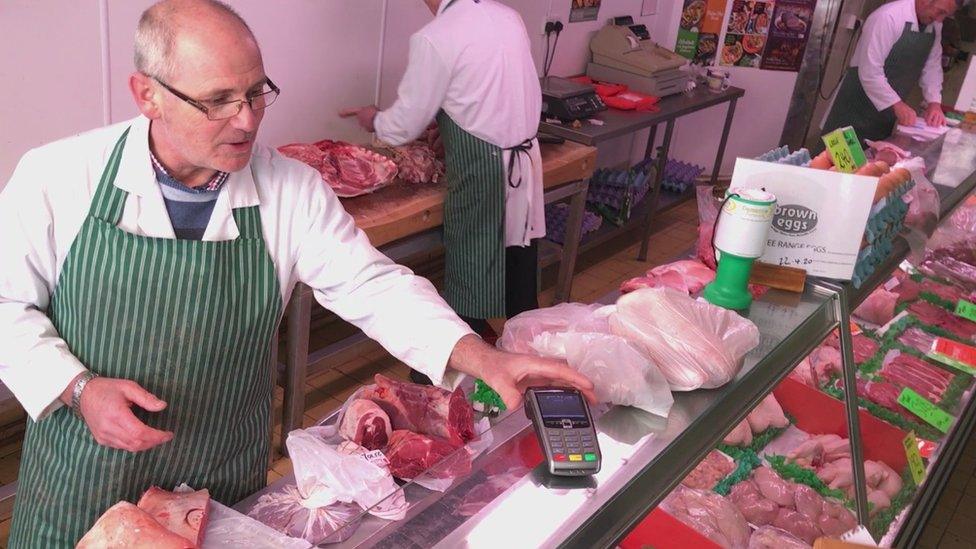
The Countryside Alliance said rural businesses were playing a vital role in keeping people fed during the coronavirus crisis
Councils across England are helping to coordinate the efforts of volunteer groups to ensure that vital supplies reach those most in need
Carl Les, leader of North Yorkshire County Council, said: "We're doing everything we can to make sure that people don't fall through the safety net".
"On the weekly conference calls we have with government ministers we're being told to spend what we need to get through this emergency and that the government will pick up the bill."
Councils in England are being given £1.6bn in emergency coronavirus funding.
Announcing the extra money in March, Communities Secretary Robert Jenrick said: "The work of local authorities to deliver social care and other vital public services has never been more important than it is now, and will be in the days and weeks ahead."
- Published3 April 2020
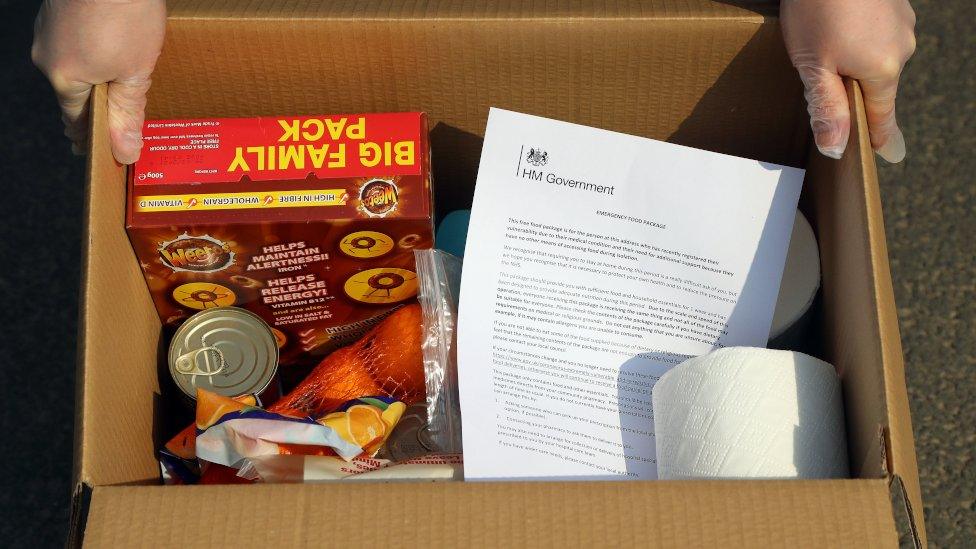
- Published26 March 2020
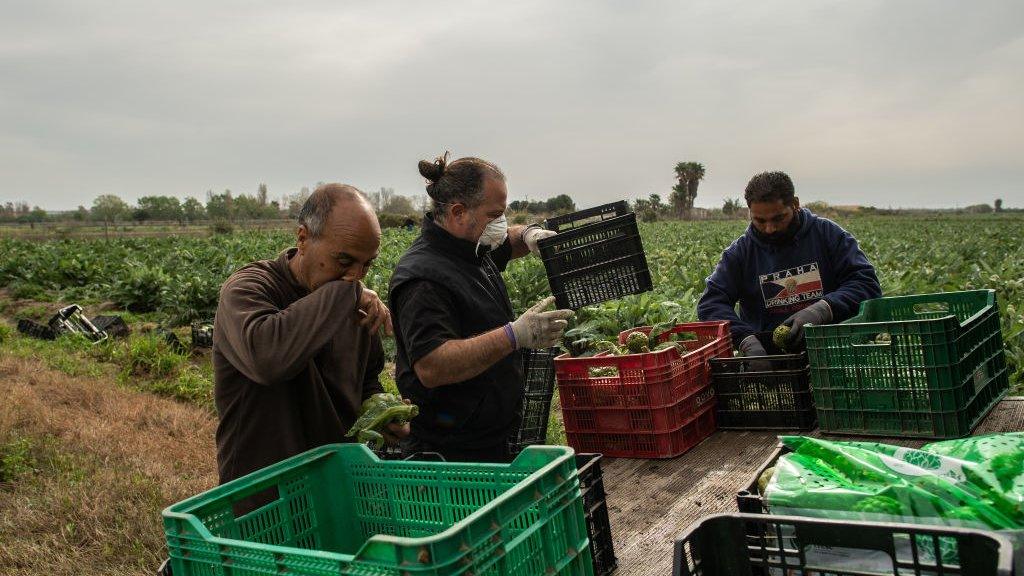
- Published8 April 2020
